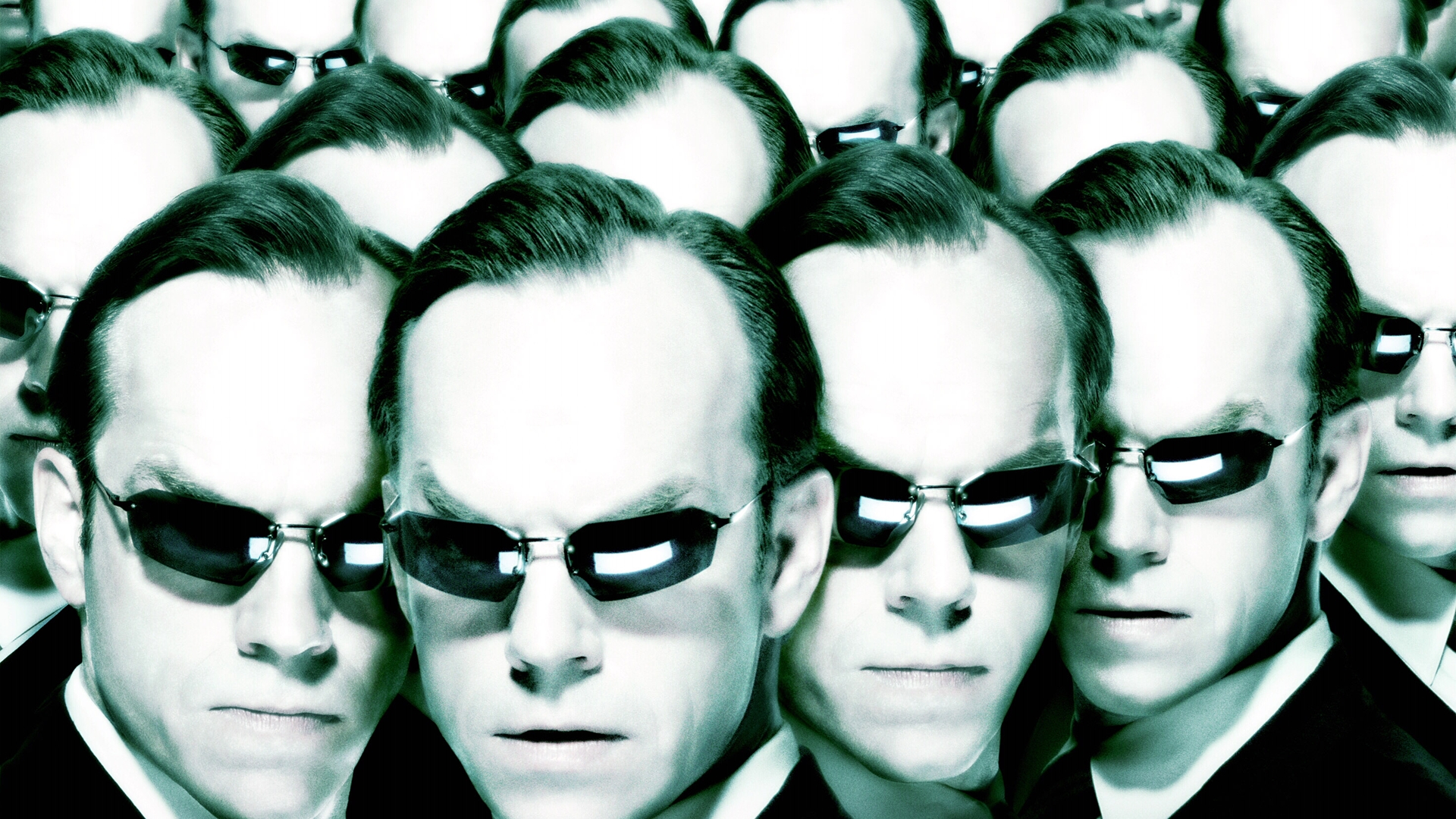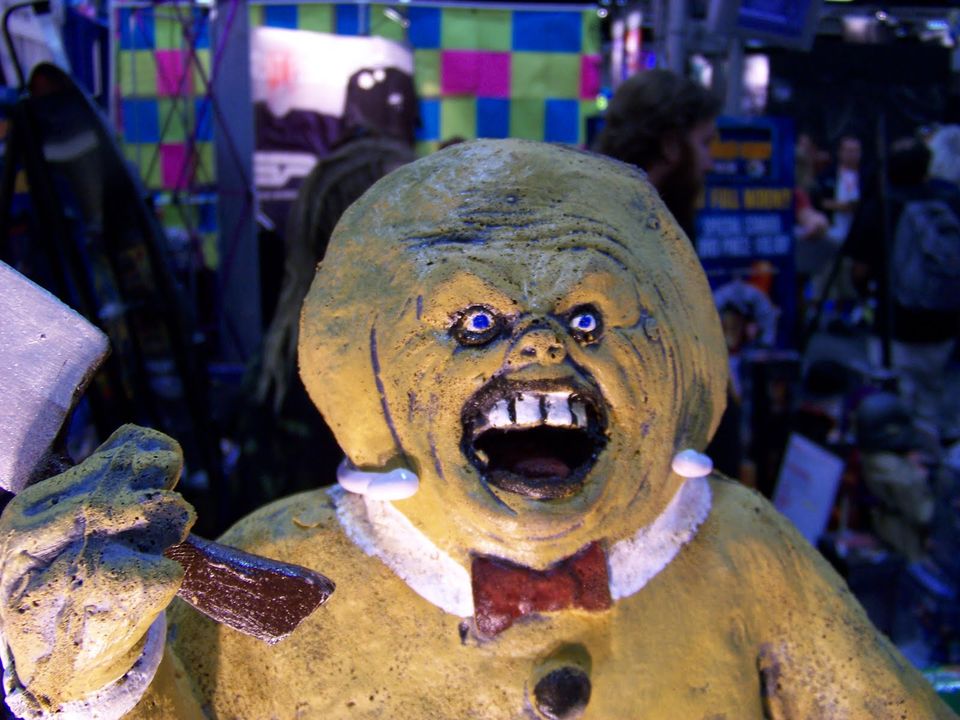The only genuine way that I have to work with my pattern of thinking, my pattern of interacting with the world, is to unconditionally accept being in that pattern. Our instinct is to fight against the pattern of behaviour (or thinking) that traps us, but this only strengthens the pattern because fighting the pattern is actually part of the pattern. This is easy enough to see if we consider the two following points:
[1] My habitual pattern of being is based upon compulsion, i.e. it is based upon driven or ‘unreflective’ action. (This is why it feels bad, because there is an essential loss of freedom involved.)
[2] My reaction of fighting the pattern (or trying to escape from the pattern) is also based upon compulsion, i.e. it is also based upon driven or ‘unreflective’ action.
Therefore, the problem is the automatic quality of my life, and my solution is to attack the first lot of ‘automatic-ness’ with a whole new lot of ‘automatic-ness’. This is like trying to ‘put out fire with gasoline’. We tend to be unimpressed with the idea that the only realistic way to work with an automatic pattern of thinking and acting is to unconditionally accept that pattern, and the reason we are so unimpressed is because we sort of assume that this is what we always do anyway. We assume that we have been ‘accepting the pattern’ all along, so what is going to be different now? And anyway, how is ‘unconditional acceptance’ supposed to make any difference? After all, doesn’t ‘unconditional acceptance’ mean ‘not trying to change stuff’? How can ‘not trying to change my pattern’ free me from my pattern?
Our assumptions are incorrect, however, because it is apparent that we were not unconditionally accepting our pattern. That we were trapped within a pattern in the first place is proof of our strongly ‘non-accepting’ attitude. The argument is simple: I must have been in a not-accepting frame of mind, or else I wouldn’t have been a slave to the compulsiveness that was driving me. Why this should be is not immediately obvious because we don’t see that the ‘non-accepting’ frame of mind arises out of the compulsion that we are being subjected to, i.e. –
A compulsion is by its very nature always ‘unaccepting’ (i.e. it is unaccepting of anything apart from what it is trying to compel us to do!) and so when we are being controlled by a compulsion we are always going to be in an unaccepting frame of mind.
When I am in the ‘automatic mode’ I am always fundamentally unfree in myself. My lack of freedom is not because of anything else other than my refusal to stick around in the discomfort zone of a compulsion that has not been obeyed. What keeps me in my unfree pattern of thinking and behaving is therefore the fact that I am stuck in ‘reacting’ to my beliefs about what is RIGHT and what is WRONG, what is ACCEPTABLE and what is UNACCEPTABLE. I am so utterly convinced that what the compulsion makes me see as being ‘unacceptable’ really is unacceptable that I am never in a position to escape the pattern that the compulsion has made me enact. I never question the rule, in other words.
Because we are almost always in this compulsion-driven ‘automatic mode’ the one thing we practically never do is to unconditionally accept stuff! Instead of unconditionally accepting stuff what we usually spend our time doing is trying as hard as we can to change ‘the way things are’ to be ‘the way which the compulsion wants them to be’.
Basically, being in the default psychological modality of ‘automatically obeying the rules that govern our pattern’ means that we are all control-freaks at heart. If we like something then we try to control the situation to ‘improve’ it or keep it that way and if we don’t like something then we try to control the situation to either get rid of it altogether or modify it as much as possible. And if we neither like something nor dislike something then we don’t have the slightest bit of interest in it!
Basically, in the default automatic mode we are dominated by the extrinsic motivation of attraction versus aversion, which effectively excludes the intrinsic motivation of ‘agenda-less curiosity’. Extrinsic motivation therefore means the motivation of automatic behaviour, the motivation of ‘RIGHT WAY versus WRONG WAY’, the motivation of acceptance versus rejection, the motivation of compulsion, the motivation of rules, the motivation of pressure and anxiety…
Intrinsic motivation on the other hand has nothing to do with rules or compulsions and everything to do with freedom. Instead of ‘picking and choosing’, ‘accepting’ and ‘rejecting’, intrinsic motivation means being interested in ‘where we are’ simply because that is where we happen to be! We don’t need a reason to be interested, in other words. We don’t need an agenda to govern what we’re doing…
Extrinsic motivation always requires ‘a reason’ for being somewhere, we are never ‘just there because we’re there’. On the contrary, we’re there with an agenda, and ‘being there with an agenda’ means that we are not there at all, when it comes right down to it. We are in our idea about reality, in our theory of reality, not in reality itself.
To be under the force of a compulsion is to have a very big agenda – the agenda to do what the compulsion wants me to do. This – as we have said – is what governs our pattern of being in the world. Sometimes, however, we kick against the compulsion and don’t do what it wants us to do. We fight against it – we see that we have no freedom and the pain of having no freedom causes us to rebel against the rules that are governing us. This doesn’t help us escape the pattern however because as we have said fighting against the pattern is part of the pattern.
When I fight against the compulsion I turn things around – I turn the whole thing on its head. The compulsion says go forward and so I go back (or the compulsion says go back and so I go forward). The compulsion says one thing and I do the other. I do the opposite thing! This doesn’t help me escape the pattern in the slightest because any pair of opposites are really the same thing – just as the ‘heads’ and ‘tails’ side of a coin are the very same thing (i.e. it is the very same coin in both cases). Saying ‘NO’ to the pattern is therefore the very same thing as saying ‘YES’ to it…
We’ve already said that to be in the compulsion-driven ‘automatic mode’ is to be in a very ‘unaccepting’ frame of mind. Going along with the pattern, going along with the compulsion, means being unaccepting of anything that isn’t what the compulsion wants me to do. But if I fight against the compulsion then I am being unaccepting of whatever it is that the compulsion wants me to do and so either way I am in an adamantly ‘unaccepting’ frame of mind! It is being in this resolutely unaccepting frame of mind that traps me, that prevents me from being free…
When I am in an unaccepting frame of mind I am rejecting where I am, and I am wanting to be somewhere else. ‘Wanting to be somewhere else’ is wanting to be in my idea of reality, my concept of reality, my agenda for reality, which isn’t the same thing as reality at all, and never could be. As far as I am concerned, things will only be ‘right’ when reality matches my agenda for it. My agenda is such-and-such, my ‘rule’ is such-and-such and so things are only going to be good when reality equals my rule for it. As far as I am concerned things are only going to be good when the rule is obeyed, in other words. But this is of course the same old ‘default mode’, the same old compulsive modality of automatic reacting that I am always in. ‘Wanting things to be different’ isn’t going to help me because this is what I do all the time!
When I am in ‘default mode’ I am not open to where I am – I am not in the ‘here & now of where I am’, I am ‘in my head’. I am not free to be in reality because I am obeying the rule and just as I can never become free by ‘obeying the rule’, so too I can never be in reality as a result of obeying the rule. This is a complete and utter impossibility! In order to be in reality I have to be free, and being free means not wanting things to be a different way than the way they actually are…
When I am not free because I am in my head, because I am stuck in my idea or agenda about ‘how things should be’, then I am in the realm of negative freedom, which is a ‘backwards’ sort of freedom – the freedom that I have to not be in Reality. Or as J.G. Bennett says, negative freedom is the freedom that I have not to be free…
A good way to explain negative freedom is to think in terms of ‘games’. Games as everybody knows are all about ‘trying to win’ – the motivation behind games is therefore ‘the motivation to obtain success, and avoid failure’, which is the motivation of compulsion. Games are a particular example of the default psychological modality of automatic reacting therefore – an explicit example since we all know that games have rules and playing a game is all about following the rules successfully. If we don’t follow the rules we are straightaway disqualified, after all!
A basic definition of a game is a situation where all the possibilities are known, and where I possess the power to manipulate those possibilities and ultimately arrive at the designated winning position if I am skilful (or lucky) enough. Because we are so very focussed on reaching the designated winning position we do not pay any attention to the fact that there is actually no freedom in the game. There is the freedom to win – if we are skilful or lucky enough – but this isn’t really any sort of freedom at all since we don’t have any choice in the matter. If we are playing the game, then we have to try our best to win, but because we are trying so hard to win we don’t see that we have no freedom in this!
The type of ‘freedom’ that is valued in games is the freedom to control effectively, but this isn’t really freedom at all but negative freedom. As common experience shows, however, when we are engaged in playing a game negative freedom (i.e. the freedom to control according to a template which has been provided for us) substitutes for the real thing in such a way that we can’t tell the difference. When we are caught up in a game, in other words, we don’t feel that we are unfree…
The reality of the present moment, however, is not a game – it isn’t a known option that I select to suit me, it isn’t something that I choose. The reality of the present moment isn’t a ‘defined option’ (it isn’t ‘a possibility as defined in a game’) – it is something that I have no choice about whatsoever! Actual reality is not defined and I can’t control it! This is far from being obvious because we naturally think that we have at least a degree of control over what happens to us, but this is not getting the point. The point is that right now, in the reality of the here and now, there can be no such thing as control. As Krishnamurti says, reality is choiceless.
Reality is not something that I control – the idea of controlling my own reality is crazy because if I could control reality then I could make it be anyway that I want, and if I could ‘make reality be anything I want’ then it would only ever be a projection of my own ideas, my own mind, my own desires. So in this case there wouldn’t actually be a reality – outside of myself and my wishes – and so I would be stuck inside the sterile, solipsistic bubble of ‘myself’ plus ‘how I want things to be’. All I would ever see would be my own face, my own mind, reflected back at me…
What makes Reality actually be Reality (rather than just my own sterile fantasy) is the fact that it is independent of my thinking, my mind, and my wishes. It is what it is in itself, not what I think it is, not what I assume it to be. That’s what makes Reality a sane and spacious place to be, a real place to be. That is what provides me with a spacious situation, rather than the horrifically space-less situation of ‘me plus my own closed mind’.
It might seem frustrating when Reality is not what we want it to be – obviously this often is frustrating because we put so much effort into changing it to suit ourselves – but it comes as a unimaginably huge relief when I finally discover that Reality has nothing at all to do with my thinking, my expectations, my plans, and my actions. To discover Reality is to find peace of mind, which is not something that we could ever manufacture for ourselves.
If we had to manufacture our own Peace of Mind (if we were responsible for it, in other words) then we would be in a terrible fix. We would never be able ‘to take time off’ – we would never be able to take a holiday from monitoring and controlling. We would never be able to ‘let go’ and experience the blessed relief that comes with letting go. And this fundamental incapacity to ever let go and stop controlling is of course exactly the situation that we find ourselves in when we are in that ubiquitous ‘default psychological’ mode of ‘automatic reacting’.
The fact that we generally find it so very hard to understand this point about the now not being something we can control shows something very important – it shows that we automatically confuse two fundamentally different things. We confuse Reality with a game. We confuse Reality with our simulation of reality, with our personalized mind-created version of reality, with our own misleading ideas about reality.
The reason we don’t generally understand that ‘reality is choiceless’ is because we have confused freedom with the negative freedom. Negative freedom – just to reiterate – is the freedom we have not to be free, the freedom we have not to see reality for ourselves. Instead of seeing reality for ourselves, we automatically accept whatever crudely over-simplified version or analogue of it it is that we have been provided with. Instead of being free, we deterministically obey the rules of whatever game it is that we are playing. In a game there is no freedom to do anything other than what is allowed by the game and this means that we have neatly side-stepped the obligation to ‘see reality for ourselves’.
We are so used to living in our thoughts that we have forgotten that there is a Reality outside of them, a Reality which bears no relation whatsoever to our assumptions about it. Our ‘thoughts about Reality’ equals ‘the trap that we can’t escape from’ – our thoughts about reality equals ‘the deterministic pattern of being that we can’t ever seem to get free from’.
To say that ‘the only genuinely helpful way to work with a pattern is to unconditionally accept that pattern’ does not mean that I should simply carry on as before because what I was doing before was continually distracting myself from the Reality of my situation. Unconditionally accepting my pattern means being in my game rather than playing my game. The difference is that in the second case I am in a situation, but not acknowledging that that I am in that situation, whereas in the first case I am in a situation but at the same time as being in the situation I see that I am in the situation.
Being consciously in my game (or in my ‘pattern’) means that I can no longer believe in the negative freedom of that game or pattern, and so an essential part of ‘playing a game’ has changed. Instead of falsely believing that I am free, I see that I am living under a compulsion, I see that I have no choice in ‘enacting the pattern’. Because I have woken up out of the hypnotic spell of ‘negative freedom’ I now see that I am being deterministically driven in everything I think and do.
Being consciously present in my own pattern of habitual self-distraction means therefore that I am no longer self-distracted and so even though I might still be in the pattern, I am at the same time free from the pattern.






